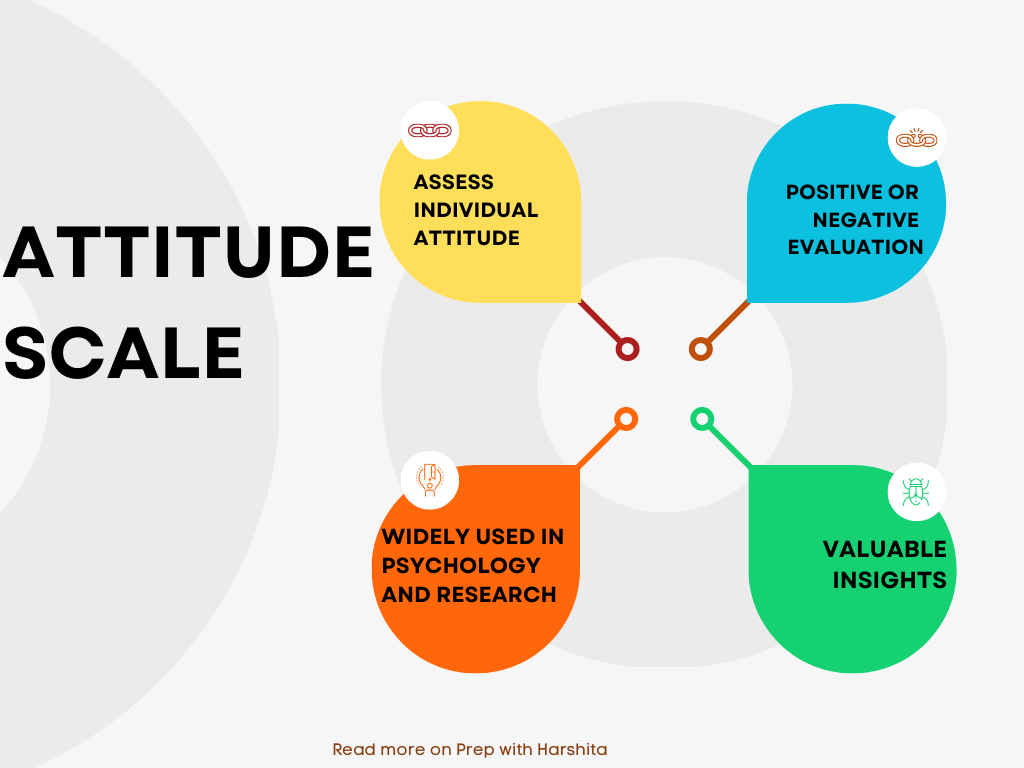An attitude scale is a measurement tool used in psychology and social sciences to assess an individual’s attitude toward a particular object, concept, or event. Attitudes refer to the positive or negative evaluations, feelings, or beliefs that individuals hold towards an object or issue. Attitude scales typically consist of a series of statements or questions that measure the strength and direction of an individual’s attitude toward a particular subject.
There are different types of attitude scales, such as Likert scales, semantic differential scales, and Thurstone scales. Likert scales are the most commonly used type of attitude scale, and they ask respondents to rate their level of agreement or disagreement with a series of statements on a numeric scale, usually ranging from 1 to 5 or 1 to 7.
Attitude scales are widely used in research studies to measure people’s attitudes toward a variety of subjects, including political issues, social problems, health behaviors, and consumer products. The data collected from attitude scales can provide valuable insights into people’s beliefs, perceptions, and intentions, and can be used to develop effective interventions or communication strategies.
Also Visit: Prep with Harshita
There are several benefits of using attitude scales to measure individuals’ attitudes toward specific objects or issues:
- Standardization: Attitude scales provide standardized measures that allow researchers to compare attitudes across different groups of people and over time.
- Accuracy: Attitude scales provide a more accurate and reliable measurement of attitudes compared to other methods such as interviews or observations.
- Precision: Attitude scales can capture even subtle differences in attitudes that might be missed through other means of measurement.
- Objectivity: Attitude scales are less prone to subjective interpretation by researchers, which can lead to more objective and unbiased data.
- Efficiency: Attitude scales are a quick and efficient way to gather data from large numbers of participants.
- Predictive power: Attitude scales can be used to predict behavior, as attitudes are often a good predictor of future behavior.
Overall, attitude scales are a useful tool for researchers to better understand individuals’ attitudes towards different objects or issues and to gain insights into potential behaviors or decision-making processes.



2 thoughts on “Attitude Scale”